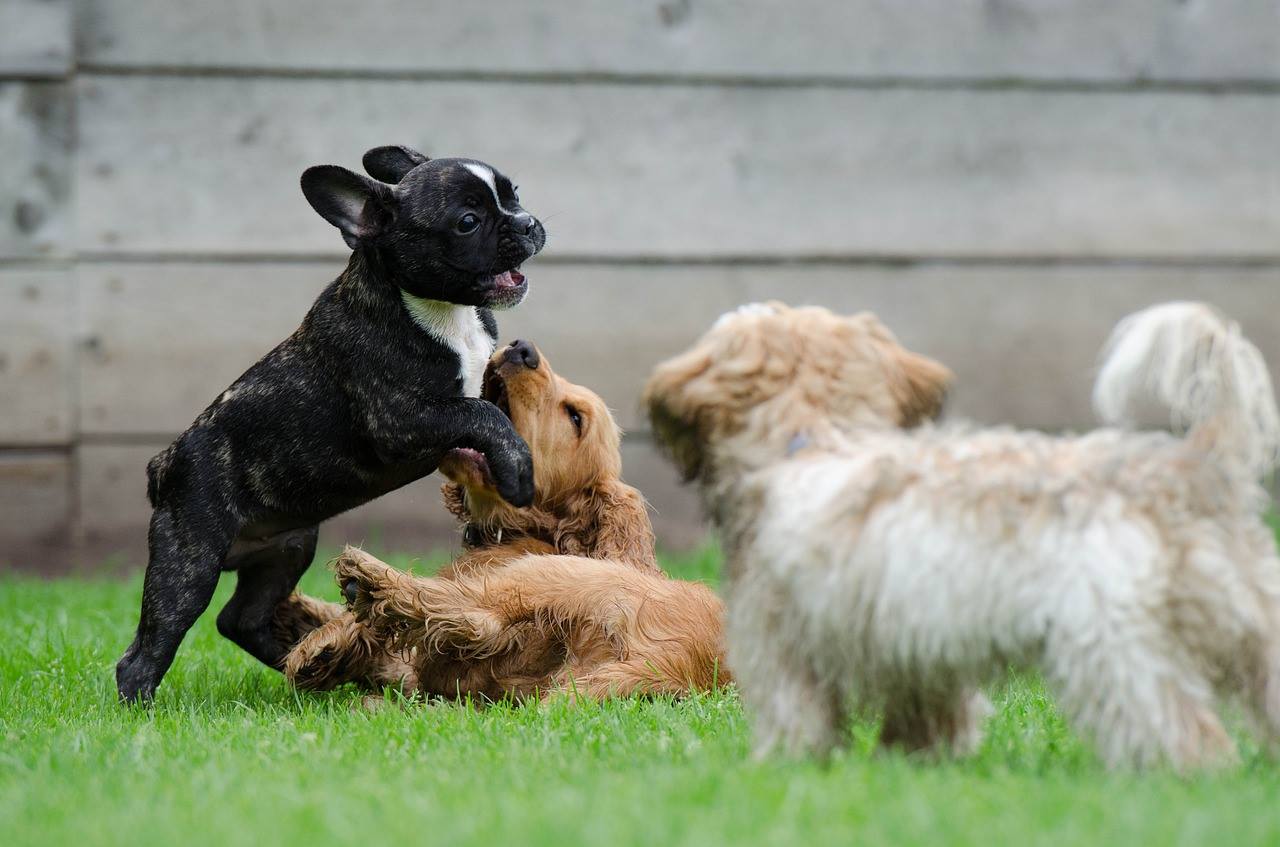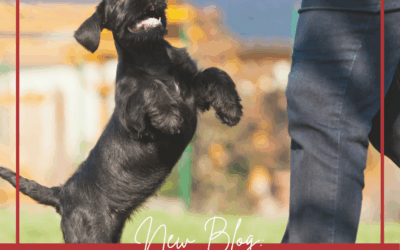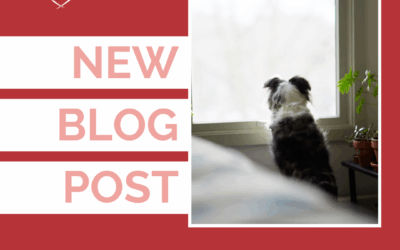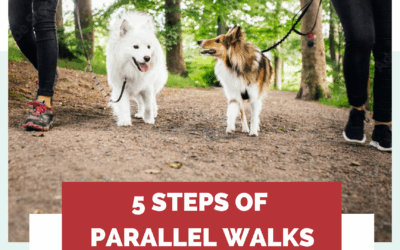There’s not too many things better in life than watching puppies romp around, wrestling, chewing on each other, playing and toppling over. But trainers know this isn’t just fun and games but that having age appropriate puppy play, especially during their critical socialization window (under 14-weeks and yes, your puppy can and should socialize with other puppies even if they’re not fully vaccinated – read more here), is incredibly important to developing proper bite inhibition. When puppies play, not only are they learning body language skills, navigating social dynamics and getting exercise but they’re getting feedback on their play style and how hard they’re biting when they’re playing. If one puppy bites another too hard, the other puppy yelps or cries and the biting puppy gets immediate feedback, so the next time that puppy bites, it learns to bite with less intensity, or to inhibit its bite. This is the important skill trainers call acquired bite inhibition (ABI) and it’s not something we can train into an adult dog. Puppies either learn it or they don’t. And those that have good ABI, when put into a situation later in life where they end up biting for whatever reason, don’t typically inflict a lot of damage whereas dogs with poor ABI often have poor case outcomes that sometimes result in euthanasia or are considered public safety risks. In fact, when I assess a case and review prognosis with clients, the dog’s ABI is the number one most important factor in likelihood for case resolution. Dogs with good ABI have a better likelihood of positive case outcomes than dogs with poor ABI.
So when I recommend that puppies have access to other puppies for puppy play, it’s not just for fun and games, It’s important. It’s also part of why puppies should stay with their littermates and mother for at least 8 weeks and why singleton puppies should try to be paired up with other puppies instead of being left on their own. Rescues and shelters that split up litters instead of allowing them to stay together are doing a huge disservice to those puppies and their ABI skills.
As humans, when we bring puppies home, we can allow gentle mouthing to help the puppy learn the difference between gentle mouthing and hard mouthing and implement timeouts for hard mouthing. Puppies who have all mouthing punished don’t actually learn to inhibit – because they aren’t given the opportunity to practice controlling hard versus soft. Also, very important note – we never, ever want to use anything scary or painful like clamping the puppy’s muzzle shut with our hands or yelling or smacking the dog’s muzzle to stop mouthing. Not only are these not effective methods to reduce mouthing but they could have serious fallout effects of making the puppy afraid of your hands or of you reaching towards them.
The Academy for Dog Trainers has a wonder post on ABI with several case studies here that is worth a read also.
Need guidance on puppy mouthing or timeouts? Set up a puppy socialization consult today!
Happy training!
![]()




